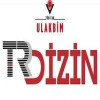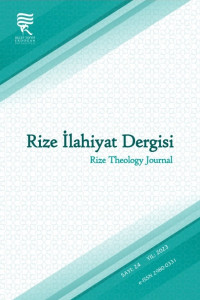Publication Ethics Principles
Stakeholder Responsibilities
All parties involved in the publication process must comply with scientific research and publication ethics.
Editors' Responsibilities
• Editors evaluate the submitted article proposals in an impartial manner, taking into account their compliance with the scope of the journal and the importance and originality of the studies. Editors take care that the published articles contribute to the reader, researcher, practitioner and scientific field, and that they are original.
• The relationship between editors, publisher and journal owner is based on the principle of editorial independence.
• Editors do not share information about a submitted article with anyone other than the responsible author, referees and editorial board.
• Editors should not have a conflict of interest regarding accepted or rejected articles.
• Editors ensure that all articles accepted for publication are subject to peer-review by at least two referees who are experts in their field.
• Editors are responsible for deciding which work will be published from the articles submitted to the journal, the validity of the work in question, its importance to researchers and readers, the comments of the referees and such legal conditions.
• Editors have the responsibility and authority to accept or reject articles. It is essential that responsibility and authority are used appropriately and on time.
• Editors ensure that all members of the Advisory Board carry out the processes in accordance with publication policies.
• Editors periodically hold meetings with the Editorial Board for publication policies and journal development.
Authors' Responsibilities
• Authors should not include plagiarism and fake data. The footnotes and bibliography list of the study should be complete.
• Keep the raw data of their work and submit it for editorial review if requested by the journal.
• The names of all authors who actively contributed to the research should be included.
• Those who do not actively contribute to the research should not be included among the authors, and those who contributed to the research other than authorship should be thanked for their contribution to the relevant research.
• Disclose conflicts of interest at the earliest possible stage (usually by providing a notification form at the time of article submission and by including a statement in the article).
• All authors must make editorial corrections.
Responsibilities of the Referees
• Referees should be impartial in their evaluations.
• Referees should not have a conflict of interest with the research, authors and/or research funders.
• It is expected from the referee not to answer only as yes or no, to elaborate the negative opinions and to state their reasons.
• Referees are expected to make a text-based evaluation only. It is important that the author(s) do not use expressions that will damage their reputation and personality rights.
• Referees should indicate published but not cited works related to the research.
• Referees should keep the manuscripts they check confidential.
Republishing
Republishing is the publication of the same article or substantially similar articles in more than one journal. The editor returns this type of article without review. After that, the editor can impose a certain period of embargo on the author attempting to republish, explain this situation to the public in the journal in which the author has previously published (perhaps as a simultaneous announcement with the editor of the journal that published the previous article), or apply all of these measures together.
If the article is produced from academic studies (Master's/PhD Thesis or Scientific Meetings), this must be stated. In order for the articles produced from the paper to be evaluated, the author must send the article with a wet signed undertaking stating "My work has not been published before and will not be published."
Simultaneous Submission of the Same Work to More Than One Journal
Author(s) cannot submit the same article to more than one journal at the same time. If the editor learns of possible simultaneous submission at the beginning of the process, they can return the article without review. If this situation is noticed during the publication process, the editor may reject the article without considering the reviews or take this decision by discussing it with the other relevant editor(s) and may decide not to accept article applications from the authors for a certain period of time. It can also write to the authors' employers or implement all of these measures together.
Plagiarism Prevention Control
Plagiarism is presenting the ideas, methods, data, practices, writings, figures or works of others as their own work, in whole or in part, without attribution in accordance with scientific rules.
Rize Theology Journal scans all submitted articles with
iThenticate software to prevent plagiarism. The similarity rate is expected to be less than 20%. The main measure of similarity is the author's compliance with the citation and citation rules. Even though the similarity rate is 1%, if the citation and citation rules are not duly made, plagiarism may still be in question. In this respect, citation and citation rules should be known by the author and should be applied carefully. Rize Theology Journal is based on the
ISNAD 2nd Edition in citations and citation rules.
Plagiarism Action Plan
Plagiarism, duplication, false authorship/denied authorship, research/data fabrication, slicing, copyright infringement and concealment of conflict of interest are considered unethical behaviors. If plagiarism is suspected in a sent or published article;
1. First, the study is reviewed by the journal's Ethics Editor, then by the Editorial Board.
2. The journal will contact the author to submit its explanations within a week.
3. If no response is received from the author within the specified time, an investigation of the allegation may be requested by contacting the institution to which the author is affiliated.
4. The following serious measures will be taken against the authors of the articles that are found to contain plagiarism despite all the precautions taken:
a. The journal will immediately contact the institution to which the author is affiliated in order to take final action against the related author.
b. The journal will remove the PDF copy of the published article from its website and disable all links to the full-text article. The phrase “Plagiarized Article” will be added to the title of the published article.
c. The journal will disable the author account and reject all future submissions by the author for a period of 5 years.
Distortion
Distortion is to produce data that is not based on research, to falsify research records and data obtained, to present methods, devices and materials that are not used in the research as if they were used, not to evaluate data that do not comply with the research hypothesis, to present a research that has not been done, to falsify research results in line with certain interests, or is to shape. The process regarding distortion claims is carried out under the control of the Journal's Ethics Editor.
Ethical Violation Notices
When readers notice a significant error or inaccuracy in an article published in the Rize Theology Journal or detect any violation of scientific research and publication ethics, they can report to the address ilahiyatdergi@erdogan.edu.tr. In terms of the development and quality of the journal, these notifications are welcomed. Quick and constructive feedback is provided.
Correction, Retraction, Expression of Concern
Editors may consider publishing correction if minor errors that do not affect the findings, interpretations and conclusions of the published paper are detected. Editors should consider retraction, In case of major errors/violations that invalidate the findings and results. Editors should consider issuing an expression of concern if there is evidence of research or publication misconduct by the authors; there is evidence that the findings are not reliable and institutions of the authors do not investigate the case or the possible investigation seems to be unfair or nonconclusive. The guidelines of COPE and ICJME are taken into consideration regarding correction, retraction or expression of concern.
Protection of Personal Information
Rize Theology Journal requires that all research involving personal and sensitive data or materials about human participants that are not legally available to the public should be subject to official ethical review.
Publication of Studies Based on Survey and Interview
1) Ethics committee permission should be obtained for research conducted in all disciplines that require ethics committee approval. This approval should be stated on the first page of the article and the "Ethics Approval Certificate" should be uploaded to the system together with the article.
2) In research that requires ethics committee permission, information about the permission (name of the committee, date and number) in the method section; In case reports, information about signing the informed consent form should be included in the article.
Special Issue Publishing Policy
Rize Theology Journal may publish a special issue once a year in December upon the request of the Editorial Board. In case of need, editor(s) of the special issue related to the subject of the special issue will be appointed. All processes related to the articles in the special issue are carried out in accordance with the general policies of the journal.
Editorial Confidentiality Obligation
Editors of Rize Theology Journal treat all submitted manuscripts as confidential documents. Information about an article is not disclosed to anyone without the permission of the authors. In the article review process; Editors, Referees, Editorial Board Members can access the articles. The only situation in which details about a manuscript may be passed on to a third party without the consent of the authors is if the editor suspects serious research misconduct.
Research and Scientific Misconduct Allegations-Suspects
Rize Theology Journal adheres to COPE's
Ethics Toolkit for a Successful Editorial Office. Editors of Rize Theology Journal will take action to prevent publication of articles in which plagiarism, citation manipulation, data tampering, data fabrication, and other research misconduct occur. Under no circumstances will the Editors of Rize Theology Journal knowingly allow such abuse to take place. If Rize Theology Journal Editors become aware of any allegations of research misconduct related to an article published in their journal, they will follow COPE's guidelines regarding the allegations. This task covers both published and unpublished articles. Referees should also report the situation to the Editor when they suspect a research or publication misconduct.
Rize Theology Journal undertakes to apply it to
COPE flowcharts when faced with allegations of misconduct on the following or similar issues.
• What to do when republishing is suspected
• What to do when plagiarism is suspected
• What to do when fabricated data is suspected
• What to do in requests for change of authorship
• What to do when an undisclosed conflict of interest is suspected
• What to do when unfair or gift authorship is suspected
• What to do when an ethical problem is suspected in an article
• What to do when notified directly with ethical violation suspected e-mail, etc.
• What to do when a suspected ethical violation is announced via social media
Complaints Procedure
Complaints must be related to content, procedures or policies that are the responsibility of Rize Theology Journal or our editorial staff. Complaints should be sent directly to the address
ilahiyatdergi@erdogan.edu.tr. Efforts are made to respond to complaints in a quick, courteous and constructive manner. The Editor follows the procedure outlined in the
COPE flowchart regarding complaints.
Objection Process
In case of serious objections to the evaluations made by the editors and referees, such objection should be forwarded to the address ilahiyatdergi@erdogan.edu.tr. In case the author's vindication is proven after the objection is reviewed, the Editor may request the author to submit a revised version of the article. In order for the process to run smoothly, it is important to include as much detail and evidence as possible in the objection letter. Only one objection is considered for each article.
Conflicts of Interest
A conflict of interest arises when professional judgment regarding a primary interest may be affected by a secondary interest (such as financial gain or personal competition). In order to make the best decision on how to handle an article, the competing interests of the authors need to be known and the readers need to know if the article is published.
Considering the conflicts of interest between the author(s), referees and other editors, Rize Theology Journal ensures that the publication process of the studies is completed in an independent and impartial manner. In studies with more than one author, the contribution rate statement, if any, a statement of support and acknowledgment, and a statement of conflict should be included at the end of the review process.
Publication Policy
1. Rize Theology Journal is a peer-reviewed academic journal published biannually (20 April-20 October) by the Faculty of Theology of Recep Tayyip Erdoğan University.
2. Article acceptance dates are 1 November-15 February for the April issue and 1 May-15 August for the October issue.
3. The publication language of the Rize Theology Journal is Turkish, English and Arabic. The Editorial Board decides on the publication of scientific works in other languages.
4. Copyright and translated articles, edition critiques, book reviews and scientific meeting reviews are published in Rize Theology Journal. Only the papers of postgraduate researchers are accepted to Rize Theology Journal.
5. In order for the manuscripts received in translation type to be processed, the document confirming that permission has been obtained from the author and/or publisher must be uploaded to the system with the name of "Permission Document". In addition, a copy of the originals of the texts should be added to the post by transferring them to the computer environment.
6. Manuscripts sent to the journal without complying with the writing principles are returned to the author for correction before being processed.
7. Double-blind refereeing system is applied in Rize Theology Journal. The article, in which two referees reported a positive report, is included in the publication process. If one of the referee reports is positive (acceptance or minor revision decision) and the other is negative (rejection or major revision decision), the study can be sent to a third referee, or it can be reviewed and decided by the Editorial Board.
8. Confidentiality is essential in referee reports. For this reason, informations of the referees are not included in the imprint of the journal.
9. A maximum of one work by the same author can be published in a single issue.
10. Journal Editorial Board members can submit articles to the journal. In the event that the members of our journal boards publish articles in our journal, all their duties in the relevant issue are suspended. Violation of the blind refereeing system is not permitted under any circumstances. Such publications cannot exceed 1/3 of the total number of articles.
11. The copyright of the articles accepted to be published in Rize Theology Journal belongs to the authors.
12. There is an obligation to comply with the grammar rules (spelling, punctuation, clarity, etc.) in the works sent to the journal. The author is fully responsible for any problems and criticisms that may occur for this reason.
13. All policies and processes in Rize Theology Journal are determined by the Editorial Board. The authority to decide on matters not mentioned here belongs to the Editorial Board.
14. Rize Theology Journal has the right to publish or not publish the submitted articles and to make corrections on the articles when it deems necessary. The legal responsibility of an article published in the journal belongs to its author and does not bind the journal. The author who submits an article to the journal is deemed to have accepted these principles. Articles that do not comply with these principles will not be evaluated.













































 Web
Web






























































